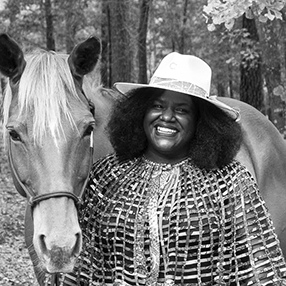When Mama died, I lost my air
When Mama died, I lost my air. Hit with an anvil of grief.
In dreams, the rains came. Streets filled with sorrow.
I’m standing with Thomas at the bridge edge seeking relief.
The sound of her voice is fleeting. Time is a thief—
she will never return to me. Thomas says not to follow
his lead. Don’t hold onto it. It’s heavy. This anvil of grief.
Without funerary activities, they say, you live in constant disbelief
your loved one is gone. You seek the Light, if only for a moment, to borrow
so you don’t follow Thomas to the bridge edge, seeking relief.
I focus what little energy I have on the children. My chief
concern. When I’m clear-eyed, I know I’m one of God’s sparrows—
yes. Mama’s dead. But He will lift the weight of my anvil of grief.
A flood of sadness fills my days. Is this the end? It is my belief
Mama’s spirit is heaven-bound, her earthly body is hollow—
there’s no use running graveside, dragging Thomas, seeking relief.
Now I know the ways of Thomas’s moods, flitting like a leaf
in the fall breeze. Grounded. Far away. Grounded. With Thomas, tomorrow’s
tasks: Kiss our children. Tell them we love them. Lift off our chests the anvil of grief—
it’s no use if we both run to the Bay bridge’s edge, seeking relief.
Copyright © 2025 by DéLana R. A. Dameron. Originally published in Poem-a-Day on June 25, 2025, by the Academy of American Poets.
“This villanelle is from my book-length poetic narrative: The Years Locusts Have Eaten. Annie, the speaker of this poem, is grieving her mother who died, suddenly and far away. Due to the time, place, and circumstance she finds herself in, she is unable to make the burial. Her inability to get closure gives her new perspective on death and her husband Thomas’s struggles—having been born an orphan, [he] wears his eternal mother-wound on his sleeve. Now, the task for the two of them: continue living, if only for the children they are raising together.”
—DéLana R. A. Dameron

